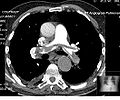Recent draft polices from the FDA’s Center for Devices and Radiological Health (CDRH) have created concern by industry members that they have been left out of the “network of experts,” a program to supplement the FDA’s existing expertise and to expedite the review process.
Recent draft polices from the FDA’s Center for Devices and Radiological Health (CDRH) have created concern by industry members that they have been left out of the “network of experts,” a program to supplement the FDA’s existing expertise and to expedite the review process. Despite the fact that the FDA has more than 800 scientists, engineers and clinicians, the agency believes that it is impractical to expect CDRH staff to keep current with so many new and complex technologies surfacing.
The network of experts is designed to be a resource for CDRH, particularly to address questions on emerging and unfamiliar technologies. The outside organizations that are being considered by CDRH for inclusion in the network “…will include professional scientific and medical organizations and academic institutions.” Even though we have not yet heard what organizations the FDA will use in a pilot program to assess their new process, a number of organizations are interested in participating in the program. Industry also would like a seat at the table.
AdvaMed voiced concerns in a written response to the draft policies. The trade organization raised the following issues:
- How will confidential information such as intellectual property and trade secrets be kept confidential? What mechanisms will the FDA deploy to maintain confidentiality?
- When reaching out to experts in a particular area, it is very likely those individuals have been involved in the development and design of a similar device, especially if the technology is new. This brings up the potential for conflict of interest. AdvaMed makes the point that conflict of interest is a concern in industry as it is in academia and that a process for excluding any potential conflicts should be implemented prior to the exchange of information. The organization also points out that academic institutions are often involved in industry-sponsored programs and may have ties that could create a conflict.
- The FDA needs to create a balanced and diverse selection of experts to avoid bias. All stakeholders, including industry, should be allowed to nominate organizations and nominees should include industry scientists. It is preferable that the FDA not select from a pool of experts who are regularly called upon to consult since this may not allow for an objective assessment of a novel device.
- Efficiency and timeliness: There is skepticism that the FDA could provide a rapid turnaround (i.e., two weeks) when engaging the network of experts on a particular topic. Large institutions are not known for making decisions in a rapid and efficient manner.
As life science consultants who represent many companies within the device industry, we are closely monitoring the FDA’s draft policies. It will be interesting to see who will be a part of the network of experts and how they will provide their expertise. We wonder, will CDRH be able to comply with its own rule of conduct for transparency while at the same time maintaining confidential and proprietary information at the review level?
Who do you think should be part of the network of experts? What should the vetting process be? Is there even a need for a network of experts? Please share your thoughts with us here or email me directly at doherty@popperandco.com.
This article originally appeared on the Popper and Co blog.







